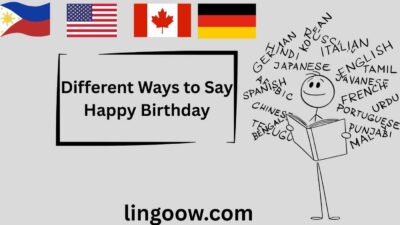When I was ten, my best friend Sarah moved across the world to Japan. We promised to stay close, scribbling letters and learning bits of each other’s new languages to keep our bond alive. I remember struggling to pronounce tomodachi, the Japanese word for friend, and how it felt like a bridge between us despite the distance.
That word carried more than a definition—it held our laughter, secrets, and promises. Across cultures, the concept of “best friends” resonates deeply, a universal thread weaving through languages and traditions. Whether whispered in a quiet moment or shouted in joy, the words for best friend reflect shared human experiences of trust, loyalty, and love. Let’s explore how this beautiful concept is expressed around the globe and what it reveals about the cultures that cherish it.
Reference Table: “Best Friend” in Different Languages
| Language | Word/Phrase for “Best Friend” | Cultural/Linguistic Insight |
| French | Meilleur ami (M)/Meilleure amie (F) | Gender-specific terms reflect French’s grammatical structure; friendship is highly valued in social bonds. |
| Spanish | Mejor amigo (M)/Mejor amiga (F) | Used widely in Latin America and Spain, emphasizing warmth and lifelong loyalty. |
| Italian | Migliore amico (M)/Migliore amica (F) | Italians often view best friends as family, with deep emotional ties. |
| German | Bester Freund (M)/Beste Freundin (F) | Precision in language mirrors the value of reliable, steadfast friendships in German culture. |
| Mandarin | Zuì hǎo de péngyǒu | Literally “best friend,” it emphasizes harmony and mutual respect in Chinese relationships. |
| Hindi | Sabse achha dost | “Dost” is a versatile term for friend, with “sabse achha” (best) adding emotional weight. |
| Japanese | Shin’yū | A term for a close, trusted friend, often implying a lifelong bond in Japanese culture. |
| Korean | Choe-go-ui chin-gu | Reflects Korea’s emphasis on deep, sincere connections, often formed in youth. |
| Arabic | Sadiq aqrab | “Sadiq” (friend) with “aqrab” (closest) conveys trust and intimacy across Arab cultures. |
| Swahili | Rafiki wa karibu | “Rafiki” (friend) is widely used in East Africa, with “wa karibu” meaning “close.” |
| Zulu | Umngane omkhulu | “Umngane” (friend) with “omkhulu” (great) reflects the communal value of friendship in Zulu culture. |
| Yoruba | Ọrẹ to dara julọ | “Ọrẹ” (friend) is a term of deep respect, often tied to shared values in Yoruba communities. |
| Maori | Hoa aroha | “Hoa” (friend) with “aroha” (love) emphasizes affection and spiritual connection. |
| Hawaiian | Hoaloha maikaʻi | “Hoaloha” (friend) with “maikaʻi” (good/best) reflects the aloha spirit of warmth and unity. |
| Cherokee | Tsadigoi | A term for a close companion, tied to Cherokee values of community and mutual support. |
European Languages
In Europe, the concept of a best friend is woven into the fabric of social life, with each language offering a unique lens. In French, meilleur ami or meilleure amie (best friend, male or female) carries a sense of exclusivity, reserved for someone you trust implicitly. French culture often celebrates friendship through long conversations over coffee or wine, where bonds deepen over time. In Spanish, mejor amigo/amiga is a term of warmth, used across Spain and Latin America to denote someone who feels like family. The phrase is often accompanied by physical affection, like hugs, reflecting the region’s expressive culture. Italian migliore amico/amica mirrors this, with friendships often treated as sacred, lifelong commitments, celebrated in tight-knit communities. In German, bester Freund/beste Freundin conveys reliability, reflecting a culture that values punctuality and dependability in relationships. Other European languages, like Portuguese (melhor amigo/amiga) and Dutch (beste vriend/vriendin), echo similar themes of loyalty, but each carries subtle cultural nuances—Portuguese friendships are vibrant and communal, while Dutch ones emphasize honesty and directness.
Asian Languages
Asia’s linguistic diversity reveals a rich tapestry of meanings for “best friend.” In Mandarin, zuì hǎo de péngyǒu (best friend) emphasizes harmony and mutual respect, core values in Chinese culture. Friendships are often seen as partnerships, built on trust and shared goals. In Hindi, sabse achha dost (best friend) is a heartfelt term, reflecting India’s emphasis on emotional bonds that transcend social barriers. The word dost itself, borrowed from Persian, evokes poetry and loyalty. Japanese shin’yū carries a sense of exclusivity, reserved for a friend who knows your heart, often formed in school years and lasting a lifetime. In Korean, choe-go-ui chin-gu reflects the importance of deep, sincere connections, often forged through shared experiences like studying or military service. Arabic, spoken across over 20 countries, uses sadiq aqrab (closest friend), emphasizing trust and intimacy, values central to Arab hospitality. Other Asian languages, like Thai (phuean thii dii thii sut, best friend) and Vietnamese (bạn thân nhất), highlight warmth and lifelong loyalty, often tied to family-like bonds.
African Languages
Africa’s linguistic landscape is as diverse as its cultures, with over 20 countries contributing unique perspectives on friendship. In Swahili, widely spoken in East Africa, rafiki wa karibu (close friend) reflects the communal nature of relationships, where friends are integral to social and family life. Zulu, spoken in South Africa, uses umngane omkhulu (great friend), emphasizing the importance of loyalty in a culture that values community and respect. Yoruba, prevalent in Nigeria, uses ọrẹ to dara julọ (best friend), a term that carries deep respect and is often tied to shared moral values. Other languages, like Amharic (yäňäw tämälläsä säw, Ethiopia) and Hausa (babban aboki, Nigeria), reflect similar themes of trust and mutual support, often rooted in communal traditions where friends play roles in ceremonies and daily life. These terms highlight how African societies often view best friends as extensions of family, integral to survival and celebration.
Indigenous & Island Languages
Indigenous and island languages offer profound insights into the concept of best friends, often tied to spiritual and communal values. In Maori, hoa aroha (friend of love) reflects New Zealand’s emphasis on affection and spiritual connection, with friends often seen as part of one’s whānau (extended family). Hawaiian hoaloha maikaʻi (best friend) embodies the aloha spirit, where friendship is an expression of love and unity, celebrated through shared activities like hula or surfing. Cherokee, spoken in parts of the United States, uses tsadigoi for a close companion, reflecting the tribe’s focus on community and mutual support. Samoan uo sili (best friend) emphasizes loyalty in a culture where communal living and shared responsibilities are paramount. Across over 20 countries with indigenous and island languages, like Inuktitut (angirraq, Canada) and Fijian (matetaka, Fiji), the concept of best friend is deeply tied to cultural practices, from storytelling to collective survival, highlighting a universal need for connection.
Cultural Insights
The concept of “best friend” has evolved across civilizations, often rooted in cultural, religious, or historical contexts. In ancient Greece, philosophers like Aristotle wrote of philia, a virtuous friendship based on mutual respect, which influenced European languages. In Chinese Confucianism, friendship is one of the five cardinal relationships, emphasizing harmony and duty, as seen in zuì hǎo de péngyǒu. In Islamic traditions, the Arabic sadiq reflects the Quranic value of trustworthiness, a cornerstone of friendship across Arab cultures. In African oral traditions, stories of loyal friends, like those in Yoruba folktales, underscore communal values. Over time, global migration and cultural exchange have blended these meanings—dost in Hindi, for example, traces back to Persian influence, while colonial histories introduced European terms to indigenous languages. Despite these variations, the universal essence of a best friend—someone who shares your joys and burdens—remains constant, a testament to humanity’s shared need for connection.
Proverbs
Proverbs about best friends reveal cultural wisdom and values:
- French: Un véritable ami est un trésor rare. (A true friend is a rare treasure.)
Reflects the French view of friendship as precious and enduring. - Chinese: Yǒu péng zì yuǎnfāng lái, bù yì lè hū? (Is it not delightful to have friends coming from afar?)
From Confucius, emphasizing the joy of deep connections. - Yoruba: Ọrẹ kan ṣoṣo dara ju ẹgbẹẹgbẹrun ẹlẹtan lọ. (One true friend is better than a thousand deceivers.)
Highlights the Yoruba value of trust in friendship. - Maori: He hoa pono, he taonga tūturu. (A true friend is a genuine treasure.)
Emphasizes the spiritual value of friendship in Maori culture. - Arabic: Al-sadiq man yahdik ila al-khayr. (A friend is one who guides you to goodness.)
Reflects the Islamic emphasis on moral guidance in friendships.
FAQs
Why do words for “best friend” sound similar in many languages?
Many languages share roots due to historical interactions, like trade or conquest. For example, Indo-European languages like French (ami) and Spanish (amigo) derive from Latin amicus. Similarly, Hindi dost and Arabic sadiq share Persian influences.
What is the oldest known usage of a word for “best friend”?
The concept of a close friend appears in ancient texts, like the Epic of Gilgamesh (circa 2100 BCE), where Enkidu is described as Gilgamesh’s trusted companion, akin to a best friend. Terms like Greek philos (friend) also date back to ancient times.
How do cultures differ in expressing the concept of best friend?
In collectivist cultures like those in Africa and Asia, best friends are often seen as family, with strong communal roles. In individualistic cultures like Germany, friendships emphasize personal loyalty and reliability. Expressions vary, from physical affection in Latin America to reserved respect in Japan.
Conclusion
The words for “best friend” may differ across languages, but their essence—a bond of trust, love, and shared moments—unites us all. From the warm mejor amigo in Spanish to the soulful hoa aroha in Maori, these terms carry the weight of human connection, transcending borders and histories. They remind us that no matter where we are, a best friend is a universal gift, a mirror to our joys and a pillar in our struggles. What’s the word for “best friend” in your language, and what stories does it hold for you? Share your experiences in the comments—I’d love to hear how you celebrate this timeless bond!

Luna-Gracelyn, the creative mind behind Lingoow.com, writes with passion and clarity.
As a professional author, she simplifies complex topics for readers worldwide.
Her work inspires, educates, and connects people through powerful, easy-to-understand content.




